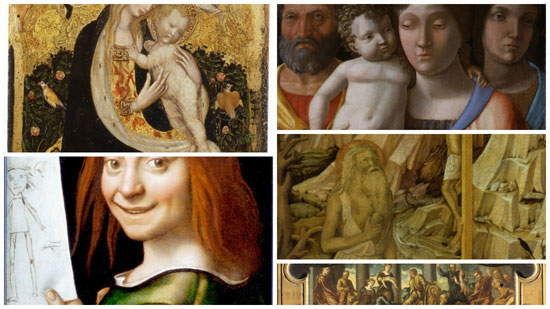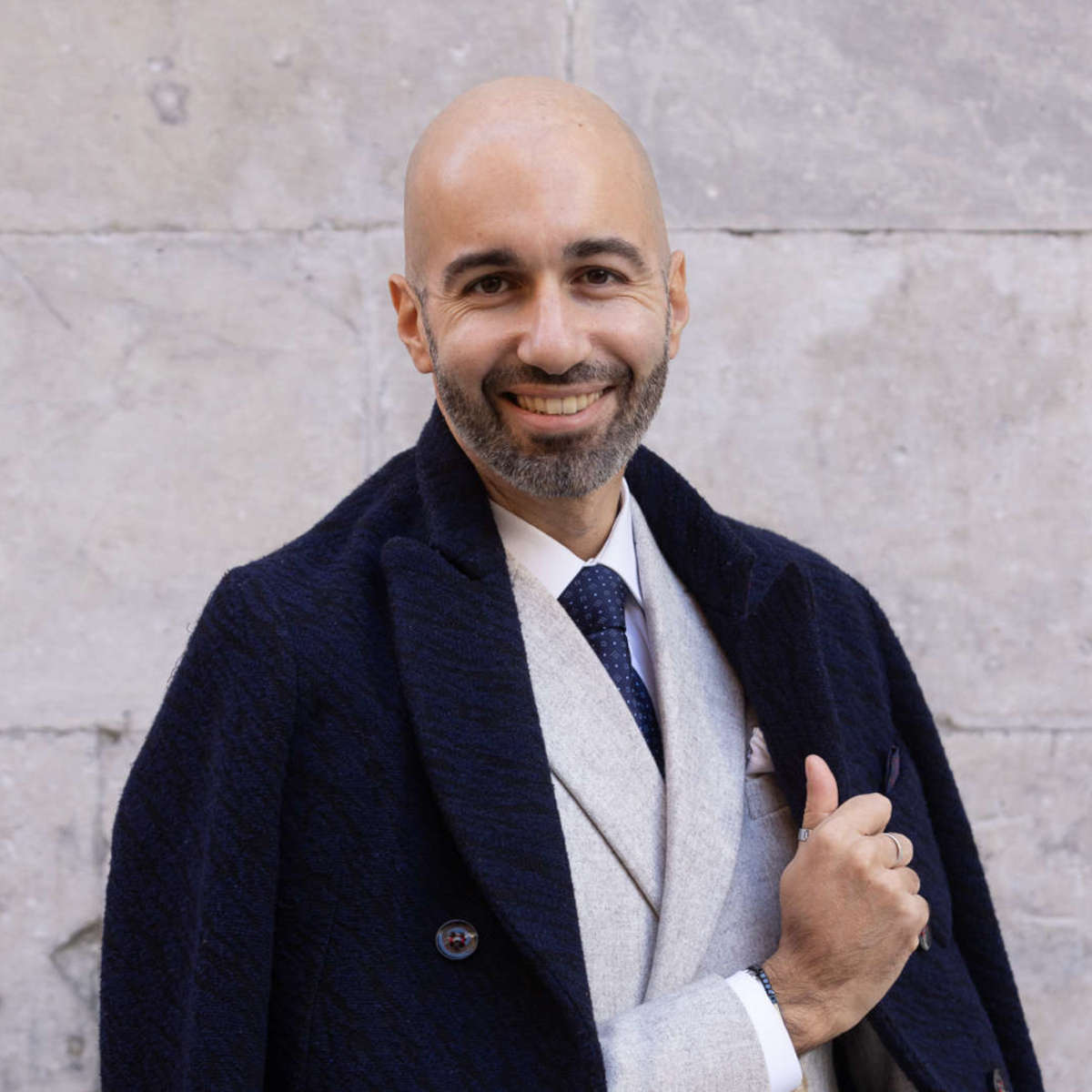With this article, with its deliberately provocative title, I would like to return to the subject of the robbery at the Castelvecchio Museum in Verona, also in light of the latest developments in the affair: we feel it is our duty to continue to focus our attention on one of the most shocking events that has affected Italy’s historical-artistic heritage in recent years because, with the theft of the museum’s seventeen works of art, it is as if a part of our own cultural identity has vanished. The affair, in our view, does not only concern Verona: it concerns all of us, because some of the stolen works are among the most important in the history of art and constitute lofty testimonies to the evolutions that art has undergone over time. To have lost them is to have lost a piece of our collective memory. Not to mention all the memories (including our own) that anyone who saw the works live stored deep in their intimacy: it is a bit as if that intimacy has been violated.
Certain exceedingly disturbing aspects have emerged in the last few hours. We have discovered that the thieves had as much as an hour and a quarter at their disposal to carry out the robbery, and we have discovered that the Museum was equipped with an alarm system that, upon activation, should have launched a visual alert to the operations center of Securitalia, the company in charge of security, but despite this, no one would seem to have noticed that the alarm had not gone off. Not only, then, was the museum forced to rely on the work of a single security guard who kept watch over the entire vast building, but no one from the operations center would appear to have been alarmed. Investigations will, of course, shed light on what happened on Thursday night: what is certain is that we all need quick answers about the security conditions of our artistic heritage.
 |
| Some of the works stolen from the Castelvecchio Museum. Full list with pictures at this link |
What we fear, however, is that on the part of those who should be keeping a high level of attention, there is very little cooperation. The news, already in the hours close to the time of the robbery, was relegated to the last minutes of the national news, and in the following days the developments were immediately downgraded to local news: by now, to find out about the turn of events one has to open the daily newspapers in and around Verona, or turn to the trade magazines. It goes without saying that we are all concerned about the alarming events taking place in Italy and throughout Europe at this time, but keeping silent about such a colossal theft of works of art (one of the most serious ever in Italy) suggests that our country has little interest in culture. Huge public sums are invested in trivial box office exhibitions, large events of dubious utility are announced, but one of the most serious offenses of recent decades conducted against our heritage does not find adequate media coverage. And without coverage, no debate on heritage security can arise that is not limited to the usual names: our culture is a heritage of the entire nation, and its security conditions should become a matter of national interest. Similarly, passing off the robbery of the Castelvecchio Museum as a marginal local news story risks losing sight of the higher value of works of art, which should not be considered as celebrities to be talked about only at high-sounding and well-sponsored events, or commodities capable of making headlines only when they break some economic record following a sale. Works of art are a testimony to our past and a guide for our future: and it is clear that if we do not recognize works of art as having this immense value, far higher than that derived from any economic estimate, we will not even have the perception of the very heavy outrage that our culture suffered Thursday night in Verona.
It is also regrettable to note the remoteness of institutions and politics: at the time I am publishing this article, Minister Dario Franceschini, two days after the beginning of the affair, has not yet made any statement, even if it consists of simple words of closeness to the people involved in the most agitated moments of the robbery. Because we remember that a cashier and a security guard were forced under duress to make way for the thugs, and we can only imagine the trauma they suffered. It is true that the Castelvecchio Museum is a civic museum, and therefore not run by the Ministry: but this is certainly not a valid excuse for not making statements. First of all because the Superintendencies, which are state institutes, although they do not deal with security, which is entrusted to the municipality, they still have jurisdiction over the life of the works (declarations of cultural interest, restorations, loans, transfers and moves). And then because the Minister of Culture is the highest representative of culture in our country: therefore, he cannot not feel touched by the affair. And his silence is as serious and embarrassing as ever. Let us also remember that the Castelvecchio Museum is also known for the many high-value initiatives that have always been held within its walls: perhaps they were not as newsworthy as some of the big-name exhibitions, but a minister should care more about the quality of an event than the clamor it caused. Or at least, for us and for those who really love art, that’s the way it is.
Now we all hold out hope that we will see the works return to where they belong. In the meantime, we expect a statement from the minister, and we await reassurances on the condition of our heritage. We can no longer afford to celebrate beauty in words and then, in deeds, allow that much-vaunted beauty to be raped in the worst of ways.We therefore need a reversal of the trend, we need to recognize the true value of culture, we need serious and productive investment, and we need culture to return to central roles in debates. Because we certainly would not want to get to the point where we really think that art is loved more by thieves than by politicians and the media.

The author of this article: Federico Giannini
Nato a Massa nel 1986, si è laureato nel 2010 in Informatica Umanistica all’Università di Pisa. Nel 2009 ha iniziato a lavorare nel settore della comunicazione su web, con particolare riferimento alla comunicazione per i beni culturali. Nel 2017 ha fondato con Ilaria Baratta la rivista Finestre sull’Arte. Dalla fondazione è direttore responsabile della rivista. Nel 2025 ha scritto il libro Vero, Falso, Fake. Credenze, errori e falsità nel mondo dell'arte (Giunti editore). Collabora e ha collaborato con diverse riviste, tra cui Art e Dossier e Left, e per la televisione è stato autore del documentario Le mani dell’arte (Rai 5) ed è stato tra i presentatori del programma Dorian – L’arte non invecchia (Rai 5). Al suo attivo anche docenze in materia di giornalismo culturale all'Università di Genova e all'Ordine dei Giornalisti, inoltre partecipa regolarmente come relatore e moderatore su temi di arte e cultura a numerosi convegni (tra gli altri: Lu.Bec. Lucca Beni Culturali, Ro.Me Exhibition, Con-Vivere Festival, TTG Travel Experience).
Warning: the translation into English of the original Italian article was created using automatic tools. We undertake to review all articles, but we do not guarantee the total absence of inaccuracies in the translation due to the program. You can find the original by clicking on the ITA button. If you find any mistake,please contact us.